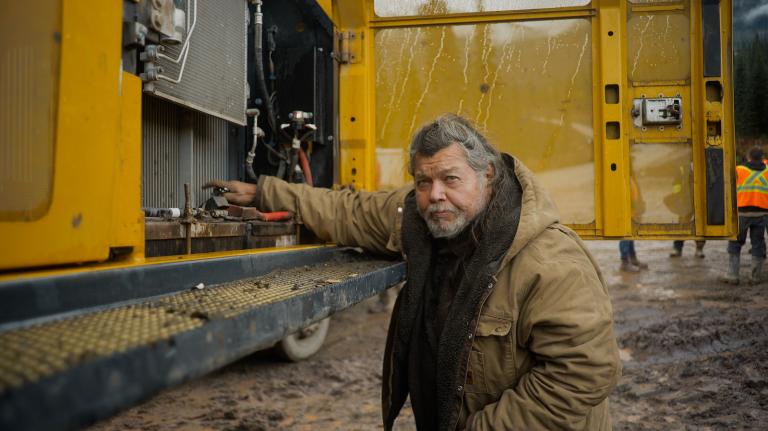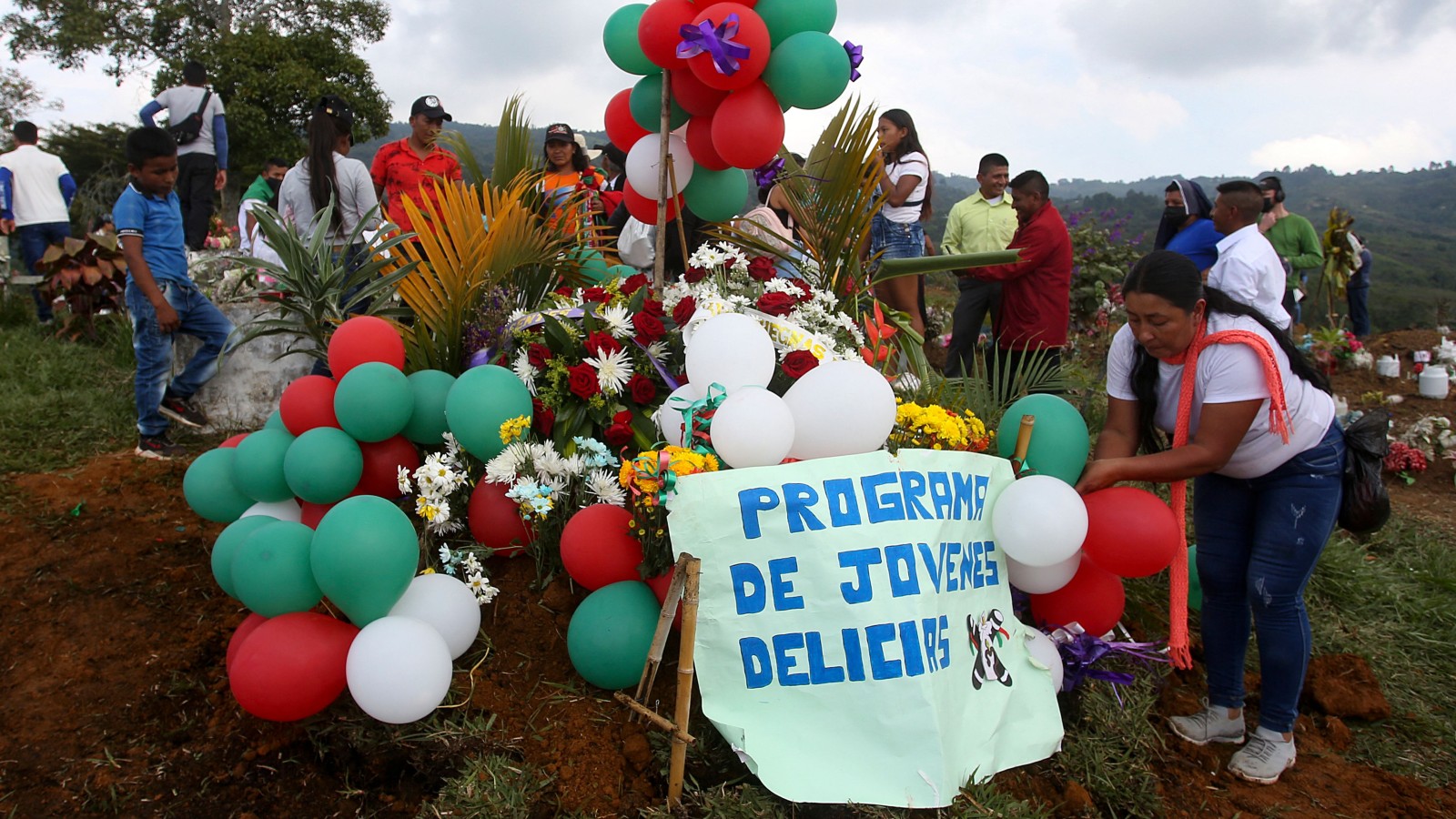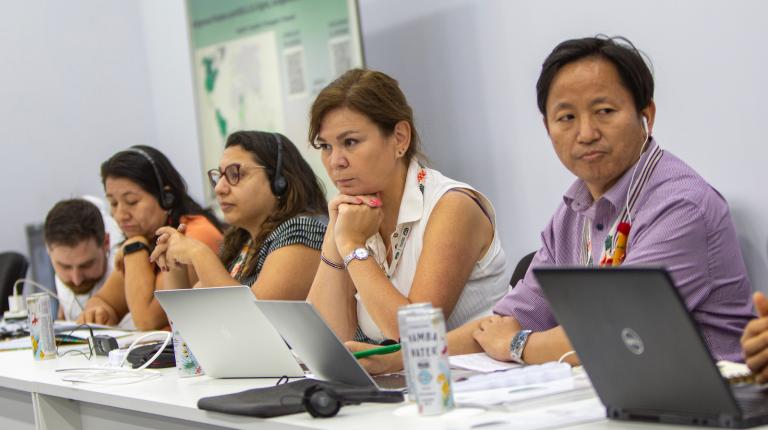Jonila Castro is an activist working with AKAP Ka Manila Bay, a group helping displaced communities along Manilla’s rapidly-developing harbor maintain their livelihoods and homes. In recent years, projects like the $15-billion New Manila International Airport have been accused of destroying mudflats and fish ponds, and have already displaced hundreds of families and fishermen who rely on the waters of Manila Bay to make a living. Castro’s work has been focused on supporting these communities and dealing with the environmental impacts of development.
But on a rainy night in September, Castro and a friend, while ending their day advocating for the rights of fishing communities, were allegedly abducted by the Philippine military for their work.
“They covered our mouths and brought us to a secret detention facility,” she said. The military interrogators asked them questions about their work in environmental justice, and accused them of being communists. “It’s actually the situation of many activists and environmental defenders here in the Philippines.”
Castro and her friend were eventually released two weeks later, but in December of 2023, the Philippine Department of Justice filed charges against them both for “embarrassing” and casting the Philippine military in a “bad light.” The military has denied Castro’s accusations.
A new study from Global Witness, an international organization that focuses on human rights and documenting infractions, finds that tactics like what Castro experienced are happening to land defenders across the planet, often with deadly results. In 2023, almost 200 environmental activists were killed for “exercising their right to protect their lands and environment from harm.” These killings are often carried out alongside acts of intimidation, smear campaigns, and criminalization by governments and often in concert with companies. The report says violence often accompanies land acquisition strategies linked to the developmental interests of agricultural, fossil fuel, and green energy companies.
“Governments around the world, not only in the Philippines, have the obligation to protect any of their citizens,” said Laura Furones, lead author of the report. “Some governments are failing spectacularly at doing that, and even becoming complicit with some of those attacks or providing an operating environment for companies.”
Indigenous peoples are the most vulnerable to these tactics. Last year, around half of those killed for their environmental activism were Indigenous or Afrodescendents. Between 2012 and 2023, almost 800 Indigenous people have been killed protecting their lands or resources, representing more than a third of all environmental defenders killed around the world in that same time frame.
Colombia has the highest death toll of environmental land defenders, and the number has gone up in 2023. There are 79 documented cases representing the highest annual total that Global Witness has accounted for since 2012. Of those cases, 31 people were Indigenous. Other Latin American countries like Brazil, Honduras, and Mexico have consistently had the most documented cases of murders of environmental defenders.
Furones said with the rise of green energy projects, mining will continue to grow, and with it, the potential for violence against land defenders. Mining operations have resulted in the most loss of life according to Global Witness, and while most of these deaths occurred in Latin American countries last year, between 2012 and 2023, many occurred in Asia. Around 40 percent of killings related to mining have happened in Asia since 2012 and the report indicates there are many mineral resources in Asia that are important for green energy technologies.
“The region has significant natural reserves of key critical minerals vital for clean energy technologies, including nickel, tin, rare-earth elements, and bauxite,” the report said. “This might be good news for the energy transition, but without drastic changes to mining practices it could also increase pressure on defenders.”
This year, the United Nations Permanent Forum on Indigenous Issues also looked into the rise of criminalization that land defenders face, while reporting from the forum showed that there has been very little done to protect Indigenous peoples’ rights over the last decade. A recent report from Climate Rights International, also on the criminalization of climate activism with a focus on Western democracies, like Germany, France, the United Kingdom, and the United States, found that governments are violating basic tenets of freedom of expression and assembly in order to crack down on climate activists. In the United Kingdom, for example, five people associated with the group Just Stop Oil were given four- and five-year prison sentences for “conspiring to cause a public nuisance” by blocking a major roadway in London in order to bring attention to the abundant use of fossil fuels. They are the longest sentences ever given for non-violent protests in Britain. Taken together, the reports highlight how criminalization has become a strategy to discredit climate activists.
In the Philippines, Jonila Castro said she would continue to protect the people and places of Manila, but she does not go anywhere alone and said she feels like she’s always looking over her shoulder. She is currently facing six months of prison for her activities.
“I think the government is thinking that we will be silenced because we’re facing charges,” she said. “But I can’t think of a reason not to continue, and that’s the same with many of the environmental defenders and activists here.”




